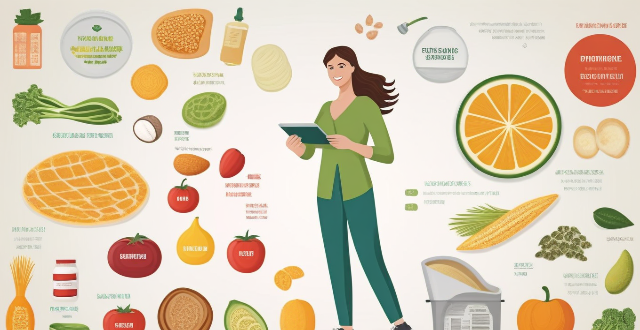Climate change poses a threat to food security by affecting various aspects of the food system, including production, distribution, and consumption. Extreme weather events such as floods, droughts, and heatwaves can have a devastating effect on crop yields, while changes in rainfall patterns and temperature can also affect crop yields. Climate change can also affect the transportation of food products and the nutrient content of food products, leading to higher prices and reduced nutritional value. To mitigate the effects of climate change on food security, sustainable agriculture practices, investment in research and development, and government policies can all play a crucial role in ensuring that people have access to affordable and nutritious food.

How Does Climate Change Affect Food Security?
Climate change is one of the most pressing global issues, and it has a significant impact on food security. In this article, we will discuss how climate change affects food security and what can be done to mitigate its effects.
Introduction
Food security refers to the availability, accessibility, and affordability of sufficient and nutritious food for all people at all times. Climate change poses a threat to food security by affecting various aspects of the food system, including production, distribution, and consumption.
Impact of Climate Change on Food Production
Extreme Weather Events
Extreme weather events such as floods, droughts, and heatwaves can have a devastating effect on crop yields. These events can damage crops, reduce soil fertility, and increase the risk of pests and diseases. For example, in 2012, a severe drought in the United States caused an estimated $30 billion in losses to the agricultural sector.
Changes in Rainfall Patterns
Changes in rainfall patterns can also affect crop yields. Some regions may experience increased rainfall, leading to flooding and waterlogging of crops. Other regions may experience reduced rainfall, leading to drought conditions that make it difficult to grow crops.
Changes in Temperature
Changes in temperature can also affect crop yields. Higher temperatures can cause crops to mature faster, reducing their overall yield. Lower temperatures can delay crop maturity or even kill them altogether.
Impact of Climate Change on Food Distribution
Transportation Disruptions
Climate change can also affect the transportation of food products. Extreme weather events such as hurricanes and typhoons can disrupt transportation networks, making it difficult to move food from farms to markets.
Refrigeration Needs
As temperatures rise, there is an increased need for refrigeration to keep food products fresh during transportation. This can increase the cost of transporting food and make it more difficult for some regions to access fresh produce.
Impact of Climate Change on Food Consumption
Nutrient Depletion
Climate change can affect the nutrient content of food products. Higher temperatures can cause crops to lose nutrients such as protein and iron, reducing their nutritional value.
Food Prices
Climate change can also affect food prices. As crop yields decrease due to extreme weather events and changes in temperature and rainfall patterns, the supply of certain food products may decrease, leading to higher prices.
Mitigating the Effects of Climate Change on Food Security
Sustainable Agriculture Practices
Sustainable agriculture practices such as conservation tillage, cover cropping, and crop rotation can help reduce the impact of climate change on crop yields. These practices help improve soil health, reduce erosion, and increase water retention.
Investment in Research and Development
Investment in research and development can help develop new crop varieties that are more resistant to extreme weather events and changes in temperature and rainfall patterns. This can help ensure that farmers have access to crops that are adapted to changing environmental conditions.
Government Policies
Government policies can play a crucial role in mitigating the effects of climate change on food security. Policies such as subsidies for sustainable agriculture practices, investment in infrastructure to improve transportation networks, and regulations to ensure fair pricing of food products can all help ensure that people have access to affordable and nutritious food.
In conclusion, climate change has a significant impact on food security by affecting various aspects of the food system, including production, distribution, and consumption. However, there are steps that can be taken to mitigate its effects and ensure that people have access to affordable and nutritious food.